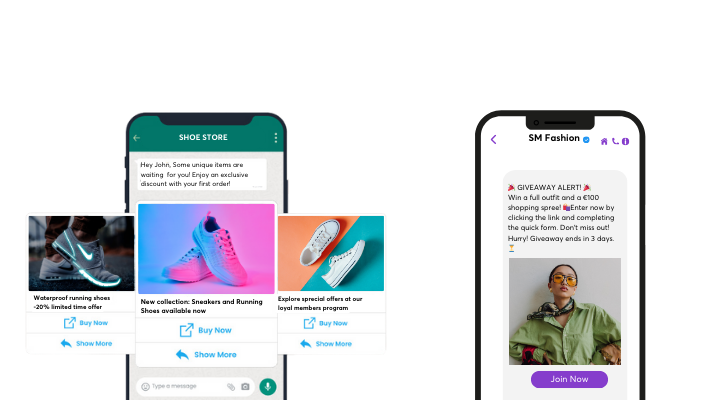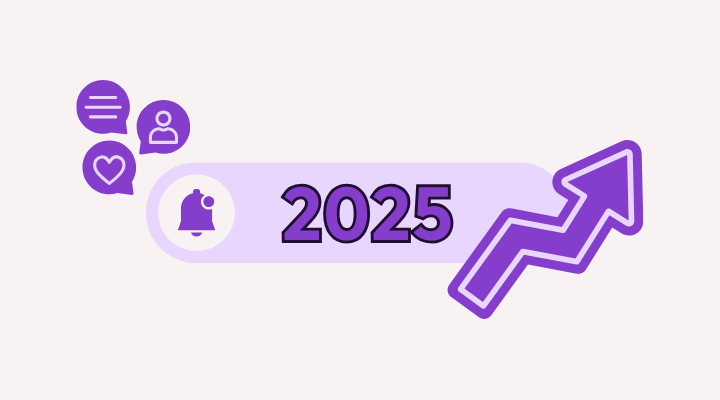In the ever-changing digital landscape, business messaging remains the key to customer communication, offering a direct and personal way to connect.
As we approach 2025, advancements in technology, shifts in online buyer behavior, and rising consumer expectations are shaping new and exciting trends.
This article explores the major trends, effective tactics, and practical tips to help businesses stay competitive by leveraging business messaging.
1. AI takes center stage
Artificial intelligence (AI) is transforming how businesses communicate, simplifying processes, and saving valuable time.
In 2025, AI will continue to be a central tool for business-to-consumer communication, providing 24/7 automated support and helping businesses better understand customer preferences and behavior.
Pro Tip: Use AI tools to craft SMS, Viber, and email campaigns that resonate with your audience.
2. Rich media messages dominate
Business messaging is becoming increasingly visual, incorporating images, videos, and carousels. The text serves as a complement to enhance these visual messages.
Leading messaging platforms like Viber and WhatsApp already enable businesses to engage customers with rich, interactive content, continuously enhancing their capabilities.

3. Seamless multichannel experiences
Today's customers are more connected than ever and expect consistent, unified communication across all channels. Whether interacting via SMS, Viber, WhatsApp, or email, customers demand a seamless experience.
4. Focus on privacy and security
Privacy and data security are more critical than ever. Regulations like GDPR are tightening, as consumers increasingly want transparency in how businesses use their personal data.
Businesses must handle customer data collection and usage with care, ensuring consent and securely storing information. Companies that adopt comprehensive security policies will build trust, while those that fail to comply risk fines and damage to their brand reputation.
GDPR: How to ensure regulatory compliance
5. Personalization and timely targeting
Mass messaging is a thing of the past. In 2025, personalization and real-time communication will be essential for fostering customer loyalty.
Consumers now expect businesses to understand their needs and communicate in ways that reflect their preferences. Personalization builds trust and loyalty, while timely communication ensures messages reach customers when they are most receptive.
Imagine communication that arrives neither uninvited nor irrelevant, but precisely when the customer is ready to engage. Personalized, well-timed messaging creates a sense of care and attention, turning casual customers into loyal brand advocates.
6. First-party data becomes vital
In 2025, the importance of first-party data will surge as businesses navigate new challenges in the digital environment. With the phasing out of third-party cookies and stricter data privacy regulations, companies can no longer rely on external sources for audience targeting and analysis.
First-party data provides a reliable foundation for personalized campaigns, enabling businesses to build genuine relationships, anticipate customer needs, and optimize the overall customer experience.
Investing in the collection and utilization of first-party data is no longer optional—it’s essential for staying competitive and achieving sustainable growth.
First-party data: A new era in customer communication


